6 Causes Why My Guinea Pig Poop Smells So Bad
Guinea pigs are clean animals, and it is one of the reasons why they are popular as pets. However, sometimes these lovely animals can give off horrible odors, making maintenance hard.
If you are wondering why your guinea pig poop smells so bad and what you can do about it, keep reading. In this post, we are going to discuss the 5 main causes in detail, and provide solutions.
Why Does Your Guinea Pig Poop Smells So Bad?
In general, healthy guinea pigs don’t stink. If your guinea pig poop is giving off an odor, you have to figure out what is causing it.
A poor quality diet is the most common cause of guinea pig poop smell. Other possible causes include lack of cleaning, giardia, intestinal problems, and diarrhea. Male guinea pigs have grease glands, which are often responsible for an odor.
To get rid of the problem, clean out the grease glands with mild soap and water. Instead of pelleted feeds, give your guinea pig only good quality hay, grass and water.
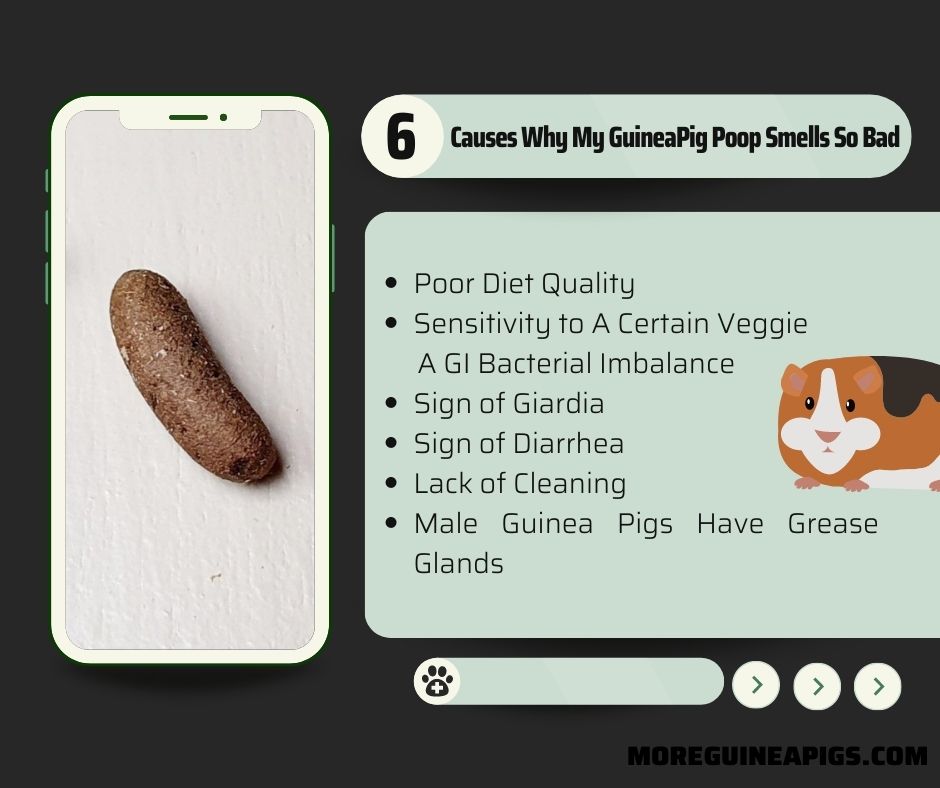
Poor Diet Quality
If your guinea pig gets a balanced diet, its poop should give off little to no odor. If the poop smells really bad, it is probably because you are feeding your piggy with meat, dairy, and processed food.
A diet that includes grains, cereals, juice, chocolate, dried beans, garden shrubs, and onion grass can also be responsible for stinky poop.Just avoid these food items and you will notice a significant difference.
Guinea pigs are herbivores, and hay is their primary food. When it comes to choosing food items for your furry baby, you don’t really have lots of options. Hay and grass are very good for their digestion, and should consist of at least 80% of the diet.
You can include nuggets in the diet, but make sure they do not exceed 10% of the entire diet. The remaining 10% of the diet should consist of fresh vegetables and fruits.
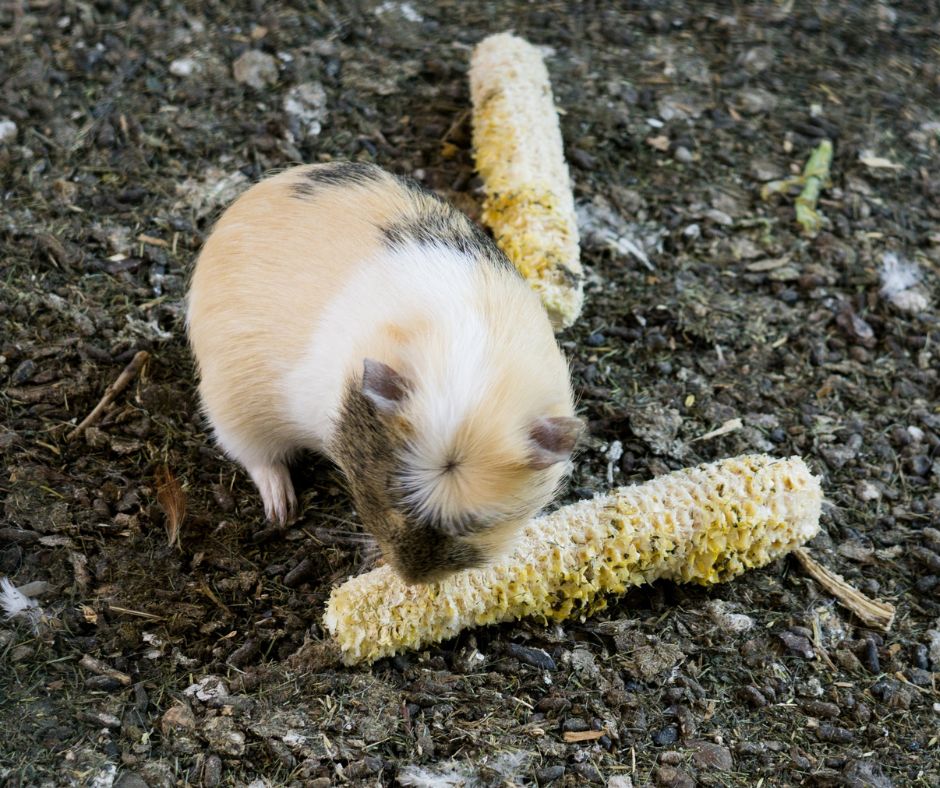
Sensitivity to A Certain Veggie Or A GI Bacterial Imbalance
There are certain veggies that can cause digestive issues in guinea pigs, and as a result their stool gives off a pungent smell.
These veggies include cauliflower, cabbage, brussels sprouts, broccoli, avocado, onions, beans, and garlic. Your cavy may be sensitive to one or more of these veggies.
Bacterial infections can cause a problem known as gastrointestinal stasis. It happens when normal bacterial flora becomes unbalanced or altered. This can slow down digestion, release toxins, cause diarrhea, and even damage the intestinal tissues.
Antibiotics can be used to treat the problem, but that should be done only under the direction of a veterinarian.
Sign of Giardia
Giardia is an intestinal infection characterized by bloating, vomiting, and watery diarrhea. Giardia, which is caused by a microscopic parasite, is not very common in guinea pigs. If your guinea pig suffers from giardia infections, the stool will stink.
In general, giardia infections in guinea pigs clear up in a couple of weeks. However, even after the parasites are gone, intestinal problems may persist.
The most common drugs used to treat giardia in guinea pigs are fenbendazole and metronidazole. Make sure you talk to a veterinarian before you use these drugs to treat giardia infections.
Sign of Diarrhea
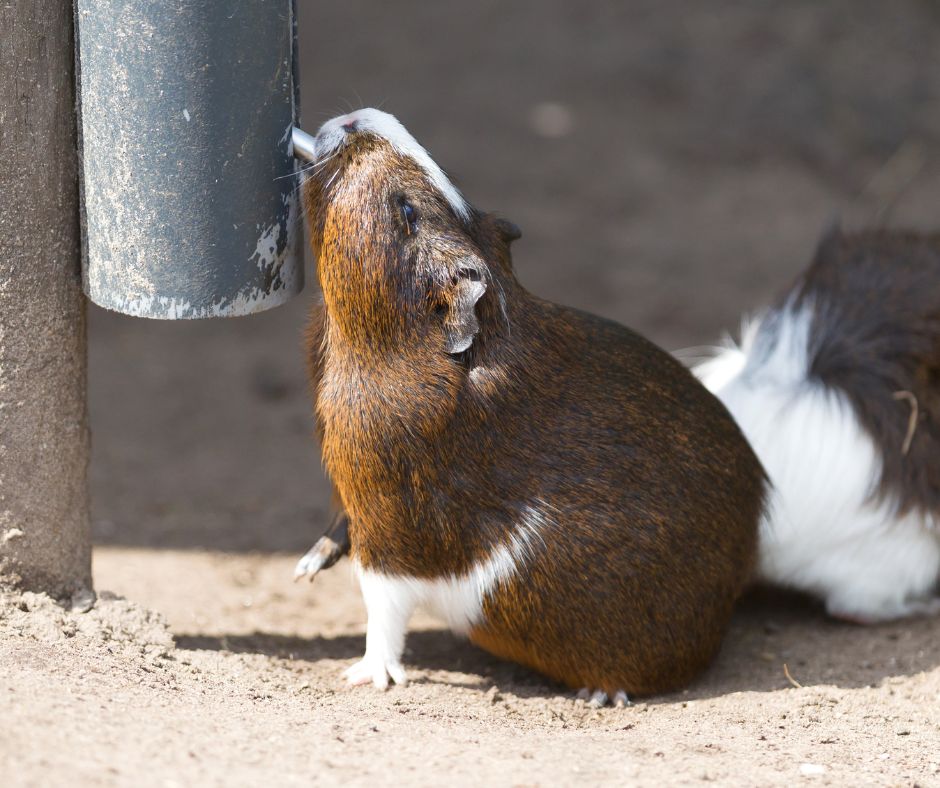
Viral, parasitic or bacterial infections can lead to diarrhea. If your guinea pig suffers from diarrhea and the stool smells bad , it is probably a sign of another health issue such as an infection.
The symptoms of diarrhea include loose, water stool, dehydration, lethargy, loss of appetite, sunken eyeballs, rough hair coat, and hunched posture.
To treat diarrhea, make sure your guinea pig drinks enough water. In case your pet is unable to drink, additional fluids should be provided intravenously. Antibiotics are effective, but they should be used only when necessary.
Consider giving your cavy some commercial supplementary probiotics to restore the balance of bacteria in the digestive tract. To prevent diet-related diarrhea, include adequate roughage in the diet.
Lack of Cleaning
If your guinea pig stinks and looks distressed but no underlying disease has been identified, you should probably be a bit more careful about its hygiene.
To improve your pet’s environment, start with the hutch, case, and enclosure. Choose cleaning products depending on the material the case is made of.
If your pet lives in a case, clean it with a pet-safe liquid disinfectant. Also, clean the play equipment and plastic base, if there is any. Before you disinfect the cage or hutch, soak it in water to loosen the dirt.
Consider using specifically designed hutch cleaning granules if a regular disinfectant fails to ward off the unpleasant odors. Whether it is a metal or wooden hutch, let it dry thoroughly once you have cleaned it.
A guinea pig can also have a smell because their poop stuck to their fur. Over a long period of time, the bacteria will grow and create a bad smell.
To clean any dry poop attached to the fur or bottom skin of a guinea pig, you can simply brush out the lingering poop or apply some cornstarch into the fur. But if the bottom is really messy, clean the area with water.
Take your piggy to a sink and let water flow over the dirty area. Make sure the water is not too hot or too cold. Don’t use human shampoo or hand wash. If you want to use shampoo, get one specifically manufactured for small animals.
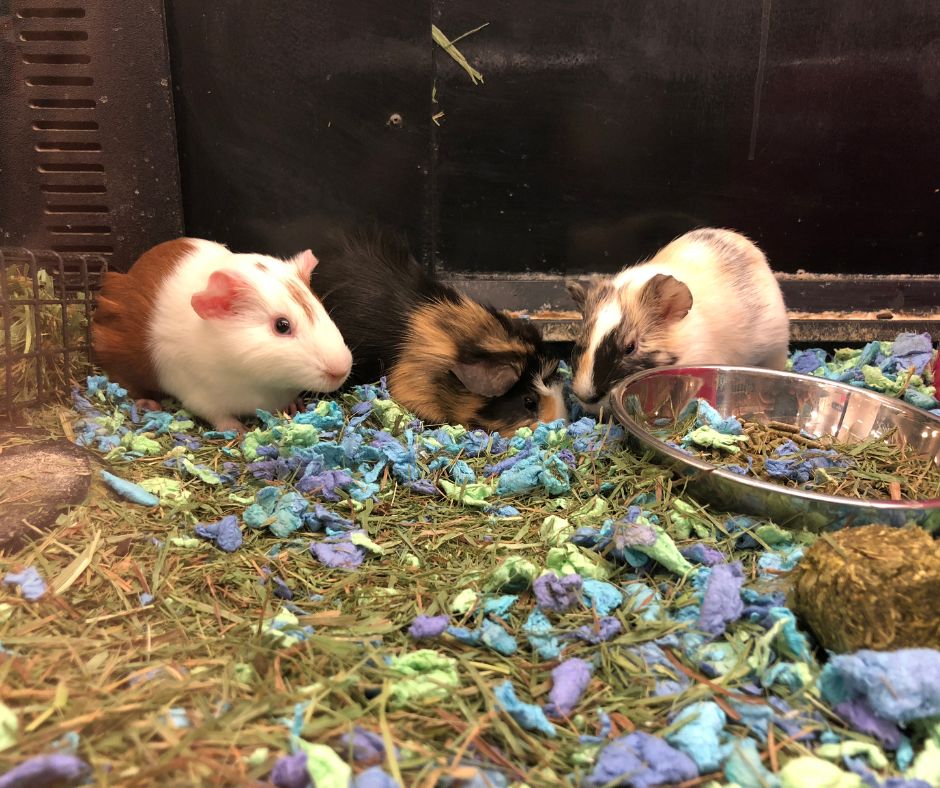
Male Guinea Pigs Have Grease Glands
Male guinea pigs have a caudal gland, also known as grease gland, that emits a greasy, oily or waxy substance with an odor. Both male and female guinea pigs have glands, but they are more active in males.
The grease glands remain mostly invisible,and become visible particularly during puberty. Guinea pigs that tend to express dominance are likely to have more active grease glands.
Check the grease gland of your pet as a part of normal grooming and care. If you allow the mucky stuff to continuously build up, it will stink and cause irritation. To avoid dealing with a mess, check the grease gland regularly.
If the area is raw, bleeding or hot to the touch, seek advice from a veterinarian. If there is already a big lump of greasy stuff, use some warm water and a natural degreasing agent to loosen the lump before you clean it.
The area must be cleaned before you apply a topical or oral antibiotic.
Foldable Hedgehog Bathtub Collapsible Small Pets Bath Tub Set,
FAQs
Why does my guinea pig’s bottom smell so bad?
A stinky bottom can be a sign that your guinea pig has a problem with its digestive system. Male guinea pigs have grease glands that release greasy, stinky stuff. You can clean the area with a natural degreasing agent.
Also, check the anal sack, which can collect junk that starts to smell bad after a while. Periodic cleaning of the anal sack should be a part of regular boar maintenance.
How to reduce guinea pigs’ smell?
To address the issue, first, you have to figure out the underlying cause. The most common causes include lack of cleaning, poor diet quality, giardia, and grease glands (for male guinea pigs).
If regular cleanliness cannot ward off the odor, consider eliminating meat, veggies and dairy from your piggy’s diet.
Do guinea pigs poop a lot?
Yes. Guinea pigs have weird pooping habits, and a healthy piggy can poop up to 100 times a day. Not all piggies are the same, and some poop more than others.
The amount depends on your guinea pig’s breed, diet, age, and weight. Don’t worry if your piggy poops a lot. If needed, clean the hutch several times a day.
How often to bathe your guinea pig?
Keep bathing your guinea pig to a minimum, because frequent bathing can lead to chills and skin infections. In the summer, once a month is enough. In the winter, you may consider bathing your piggy once every two months.
If it is a short-haired breed, the recommended frequency is just once or twice a year, unless the animal needs more frequent anti-parasitic baths.
Wrapping Up
If your guinea pig is healthy and the case is clean, there should be no unpleasant odor. In order to banish guinea pig stink, you have to figure out the underlying cause first.
In most cases, you can deal with the problem by simply maintaining cleanliness and ensuring a healthy diet. In case the odor persists even after trying home remedies, get in touch with a local vet and discuss the issue.
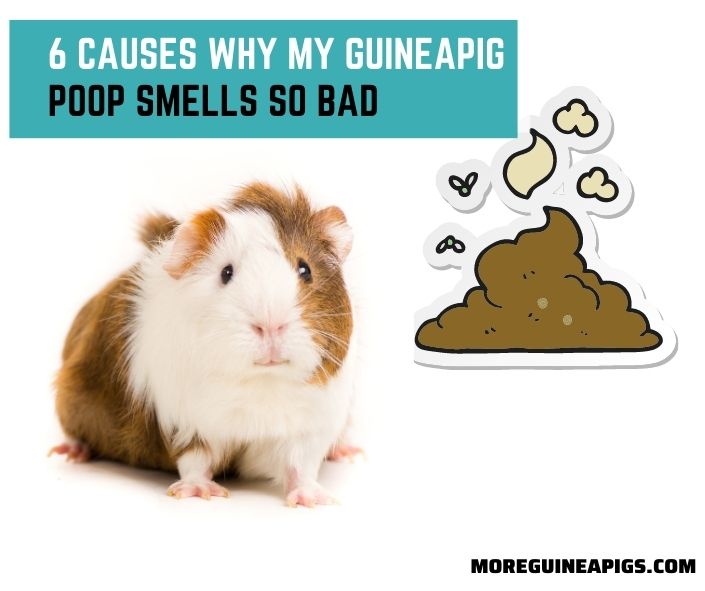

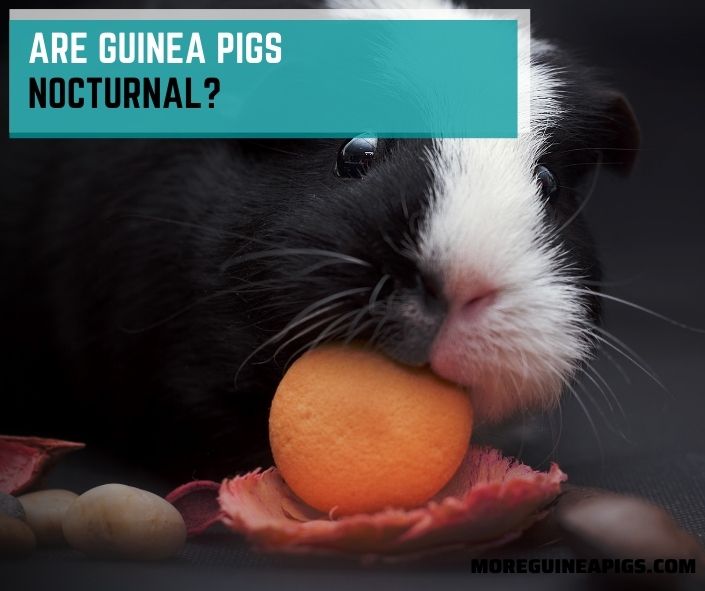
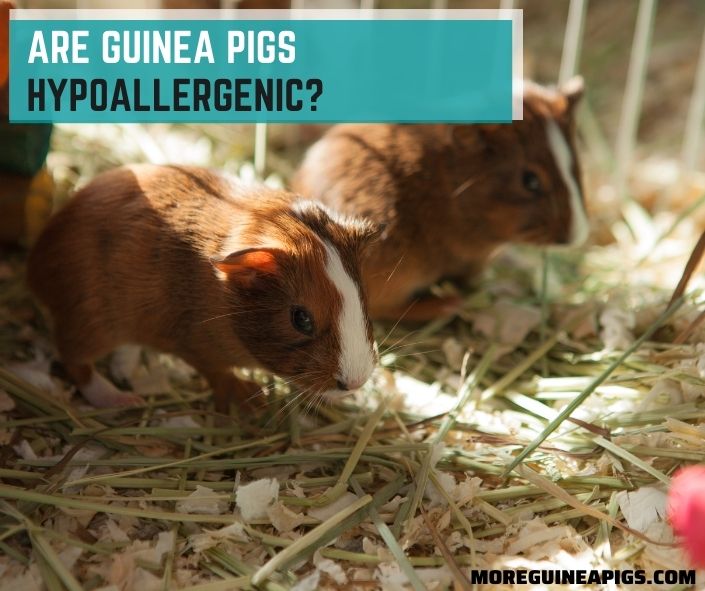
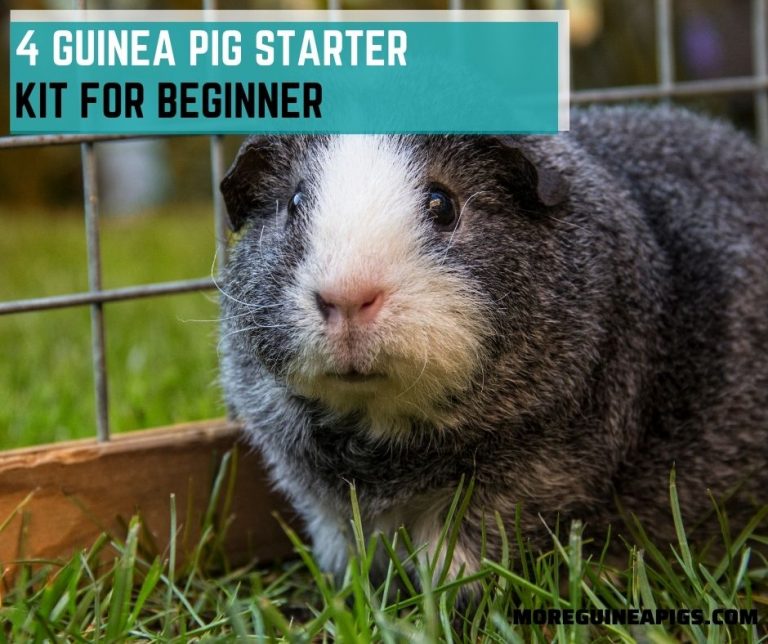
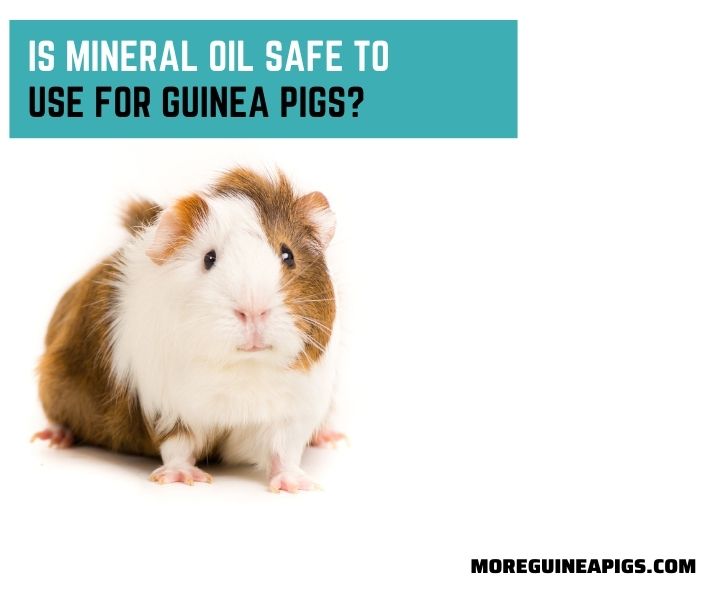
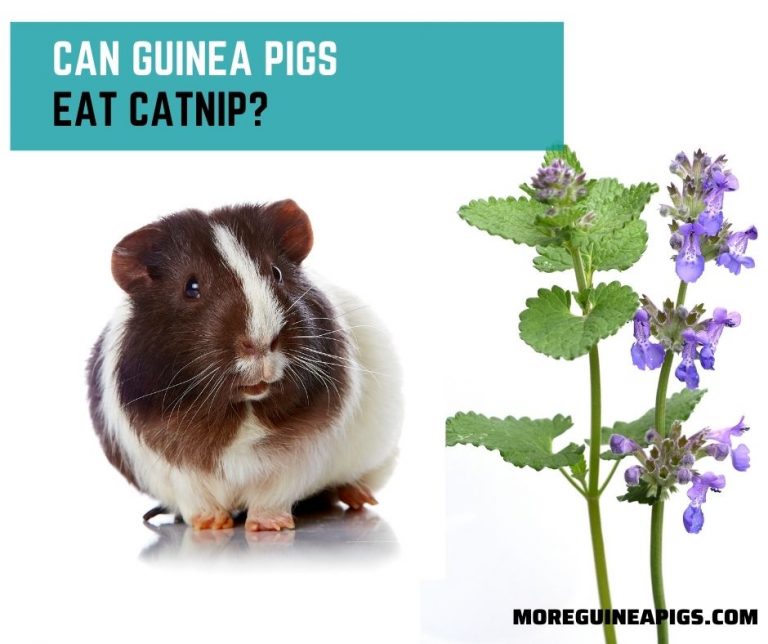
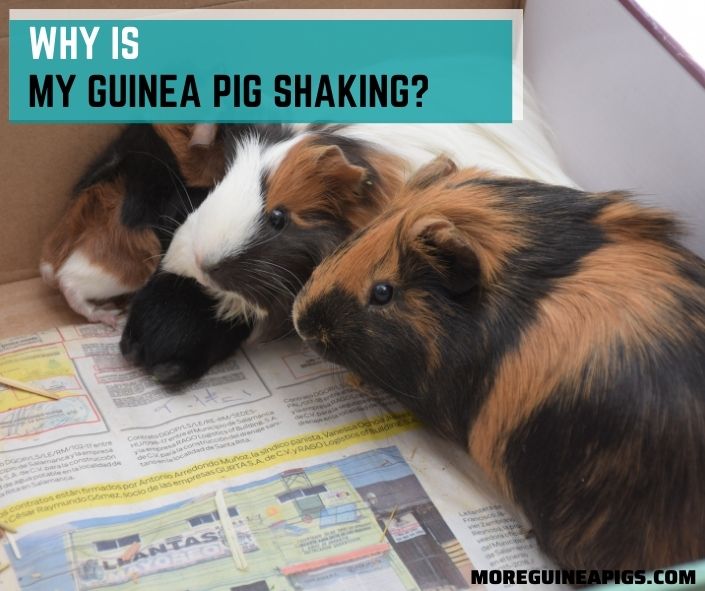
6 Comments
Comments are closed.